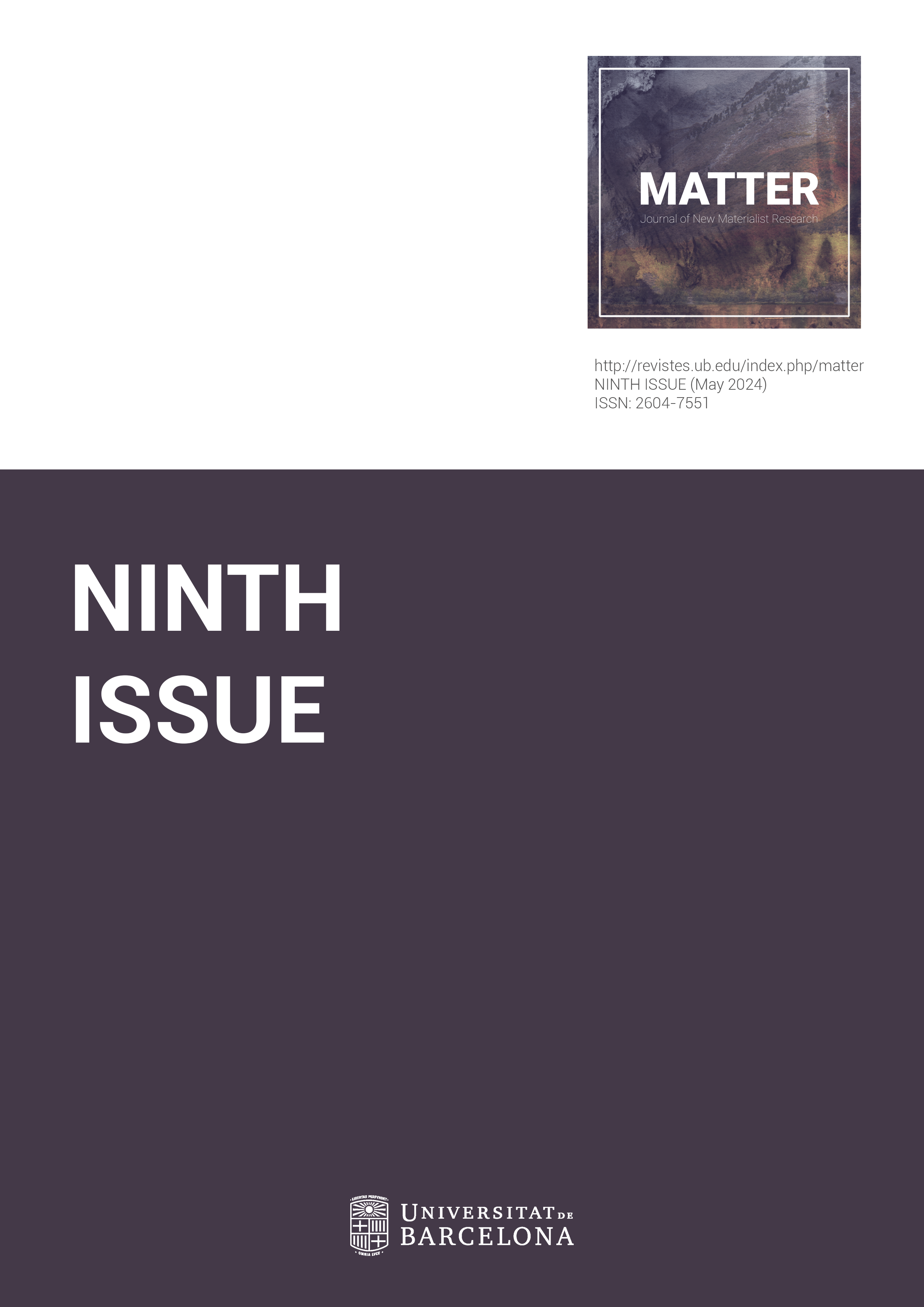Relations of care and affirmative disruptions in academia: A conversation with Katie Strom
DOI:
https://doi.org/10.1344/jnmr.v9.46299Keywords:
affect; affirmative ethics; relational care; feminist theory; critical posthumanismAbstract
This article features an intra-view with critical posthumanist Professor Kathryn (Katie) Strom and the co-editors of the intra-view section of this journal Jacky Barreiro and Magali Forte. Throughout their conversation, Strom shares her determination to co-create relations of care and affirmative disruptions in the neoliberal context of academia while giving concrete examples and explaining how her feminist praxis evolved. The three authors discuss several initiatives Strom and others have implemented, inspired by Braidotti’s (2019) notion and praxis of affirmative ethics among other feminist scholarship, to create spaces of support for graduate students and early career scholars. This piece encourages readers to view and understand feminist processes as affirmative disruptions to foster affective flows, challenge conventions, and inspire innovative scholarly pursuits.
Downloads
References
Barad, Karen (2007). Meeting the universe halfway. Quantum physics and the entanglement of matter and meaning. Duke University Press.
Barreiro, Jacky & Vroegindeweij, Melisse (2020). New materialist becomings and futurities: A panel intra-view. Matter: Journal of New Materialist Research, 1, 138-154. https://doi.org/10.1344/jnmr.v1i1.30132
Braidotti, Rosi (2019). Posthuman knowledge. Polity.
Braidotti, Rosi (2022). Posthuman feminism. Polity.
Clark, Natalie (2009). Who are you and why do you care: Intersections of identity within the university. Reflections, 15(2),5-13. https://reflectionsnarrativesofprofessionalhelping.org/index.php/Reflections/article/view/868
Dernikos, Bessie P., Lesko, Nancy, McCall, Stephanie, D. & Niccolini, Alyssa (2020). Mapping the affective turn in education. Theory, research, and pedagogies. Routledge.
Deleuze, Gilles & Guattari, Félix (1987). A thousand plateaus: Capitalism and schizophrenia. University of Minnesota Press.
Leonardo, Zeus & Zembylas, Michalinos (2013). Whiteness as technology of affect: Implications for educational praxis. Equity & Excellence in Education, 46(1), 150-165. doi:10.1080/10665684.2013.750539
Lorde, Audre Geraldine (1984). Sister outsider. Essays and speeches. Crossing Press.
Massumi, Brian (2002/2015). Politics of affect. Polity.
McKittrick, Katherine (2020). Dear science and other stories. Duke University Press.
Strom, Kathryn (2018). “That’s not very Deleuzian”: Thoughts on interrupting the exclusionary nature of “high theory”. Educational Philosophy and Theory, 50(1), 104-113. https://doi.org/10.1080/00131857.2017.1339340
Strom, Kathryn (2021). Learning from a ‘lost year’: An autotheoretical journey through anxiety and attack. Capacious: Journal for Emerging Affect Inquiry, 2(3). 2-24. https://doi.org/10.22387/CAP2020.47
Strom, Kathryn & Mills, Tammy (2021). Affirmative ethics and affective scratchings: A diffractive re-view of Posthuman knowledge and Mapping the affective turn. Matter: Journal of New Materialist Research, 2(1), 188-199. https://doi.org/10.1344/jnmr.v2i1.33382
The EMERGE Platform (2019, June 14). What is emerging? VANESSA ANDREOTTI & BAYO AKOMOLAFE - Deep Dive Interview 6 [Video]. YouTube. https://www.youtube.com/watch?v=LHwM2n2Grys&t=87s
Downloads
Published
Issue
Section
License
Copyright (c) 2024 Magali Forte, Jacky Barreiro, Kathryn Strom

This work is licensed under a Creative Commons Attribution 4.0 International License.
The authors who publish in this journal agree to the following terms:- Authors retain copyright and grant the journal the right of first publication.
- Texts will be published under a Creative Commons Attribution License that allows others to share the work, provided they include an acknowledgement of the work’s authorship, its initial publication in this journal and the terms of the license.






